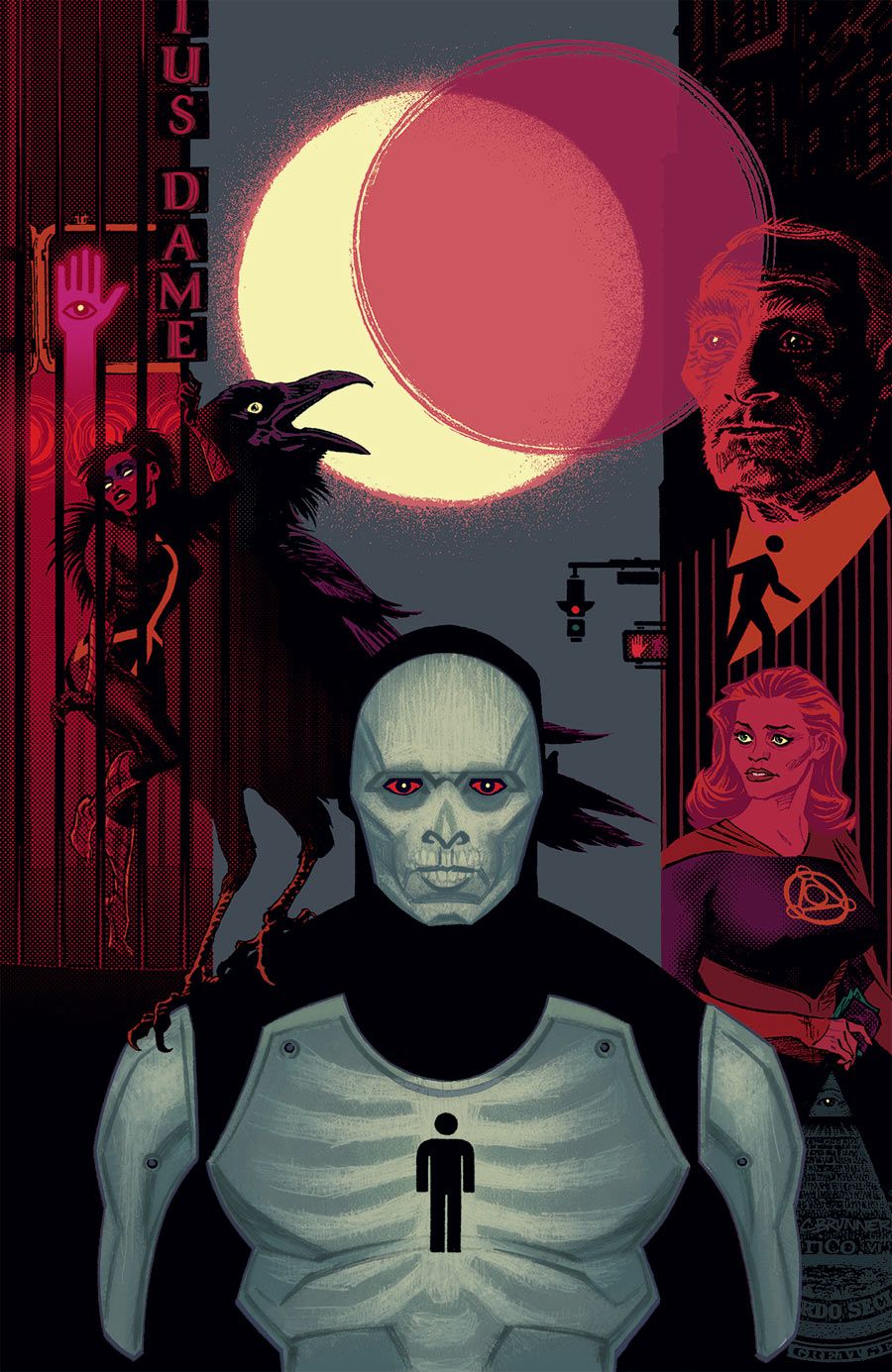The comic book world is full of superheroes, and the real world is full of people wanting to be superheroes, but Tim Seeley deliberately makes sure readers aren't really sure which one they're experiencing in "Sundowners" #1, drawn by Jim Terry. That ambiguity is what keeps readers engaged, after being invited along with a premise that manages to find a mineable and relatively unexplored aspect of the superhero genre. Seeley's story centers on a support group headed up by arrogant and opportunistic psychiatrist David "Shreds" Shrejic who heads up a support group for four (and a no-show fifth) individuals who harbor what he believes to be deluded beliefs that they are superheroes.
As each character takes their turn speaking at the group meeting, Seeley gives readers a peek into the mindset and possible mental state of each participant, and lets them decide for themselves whether any or all of these "heroes" are on the level or not. All of them have incredible stories to tell, but their stories have just enough holes and implausibilities to convince the skeptical Shreds that these individuals are not really who they believe themselves to be. Seeley gives each of these stories a kind of self-deprecating tone that lends itself to that notion, but at the same time gives each of the characters an air of sincerity that makes it seem entirely possible that there might be more truth to what they say than what Shreds believes.
Through Shreds, Seeley coins the term "Sundown Syndrome" for this perceived disorder, which could either be in reference to these characters' real or imagined nocturnal escapades, or in reference to the actual Sundown Syndrome, a real-life condition that sometimes afflicts those already stricken with dementia-related disorders. The dementia angle is one that's mentioned, although not explored, so it's not clear if the name is a deliberate reference to the actual malady or just an aptly-named coincidence. The term might seem a little off-putting to those familiar to the actual disease, but it's only a momentary distraction at worst; no worse than, say, the kind a reader might experience when discovering a character shares the same name, for instance. Without the term, the comic would need a new title, anyway.
In the few pages given to each character, Seeley establishes each one with an identity that's capable of carrying the story. This is especially true of Shreds, who has a Tyler Durden-kind of origin but whose eventual path is a far less violent and destructive one, at least so far. It appears that Shreds has some psychiatric issues of his own, setting up a potentially interesting dynamic between him and the group he runs. Oddly enough, the issue starts off with none of these characters, but rather another superhero, or perhaps another superhero wanna-be, in a somewhat strange setting that has no bearing on the remainder of this issue. Seeley clearly has something in mind, though, and it makes for a strong introduction before all of the main players are introduced.
Terry is a good choice as the artist to envision Seeley's story, as he brings an almost Ditko-esque quality to the characters, and a classic EC-like style to some of the more horrific touches. It matches up well to Seeley's cast, who are largely archetypes of existing superhero personas; something that neither creator tries to hide. It's the kind of story that lends itself to being told in a more customary format, and Terry's traditional panel layouts perfectly oblige. The only splash page is appropriately placed within the issue's introduction, and the remainder of the story is linearly told, with no gratuitous gross-outs or attention-grabbing sequences. There's nothing in Terry's art to detract from the story; every panel serves to advance it.
Terry uses his simple layouts to good effect throughout. Each of the four support group members get exactly three pages to tell their story, which is an ideal length to hold readers' attention while providing as much background that is needed. Each chapter is concluded effectively, and in similar fashion, with each character positioned at the left of a horizontal panel with Shreds' notepad, and his dismissive notations, prominent in the foreground to the right. The other artists do their part in advancing the story, as well; colorist Sean Dove follows suit with Terry and delivers colors that move the story along without looking garish or flashy. Cover artists Chris Brunner and Rico Renzi take a different but necessary approach, supplying a striking and enticing cover that features the characters to look for on the inside without foreshadowing any of the events.
"Sundowners" #1 is a superhero story of sorts, and one with the kind of cast that's been seen many times before, but also one that actually finds something a little different to say.

